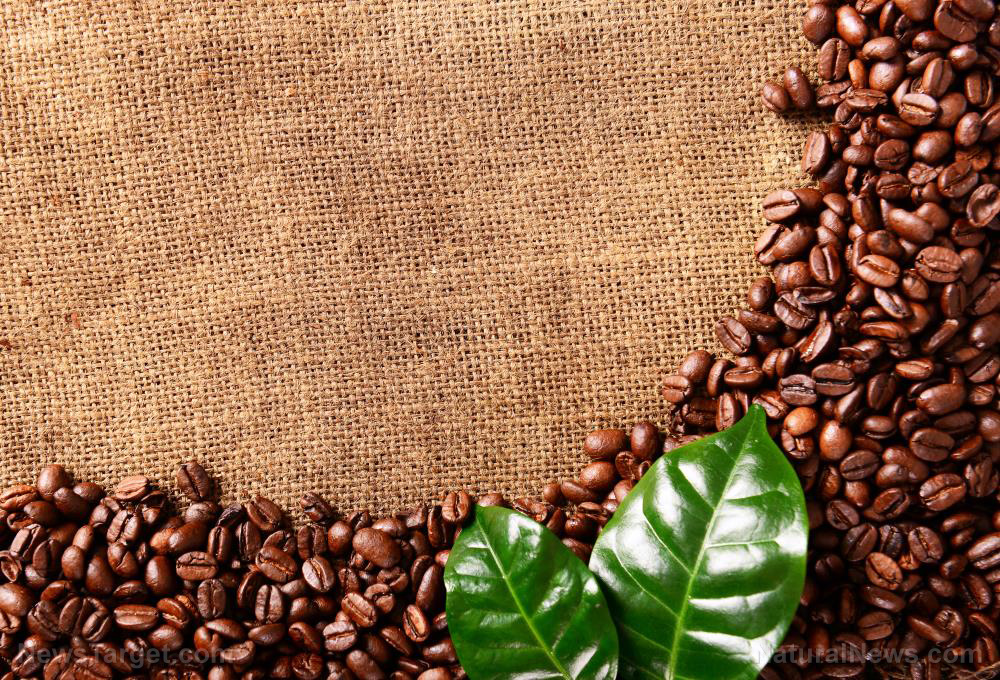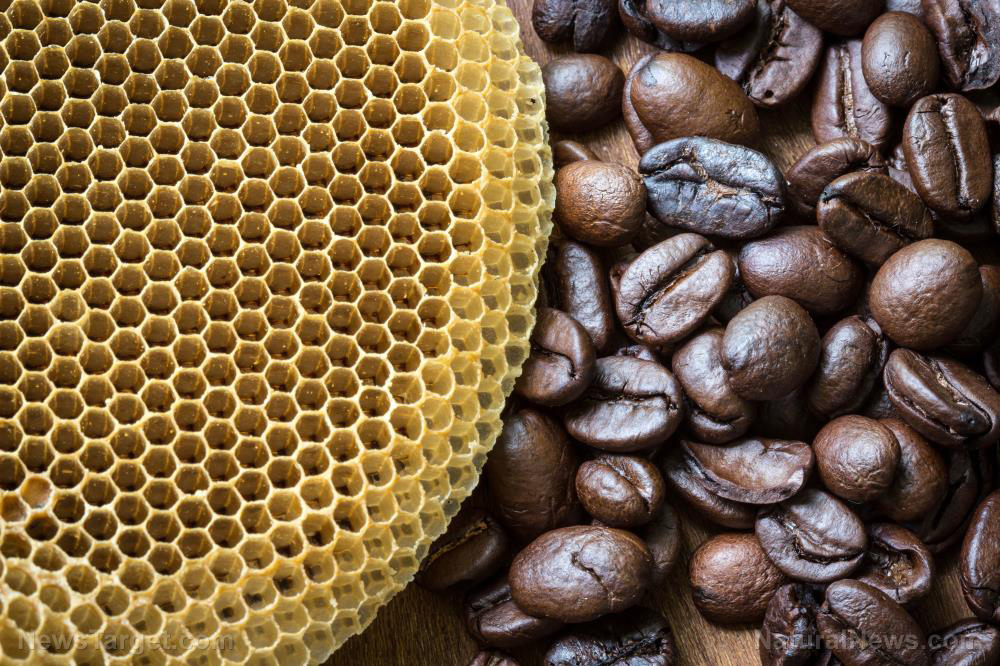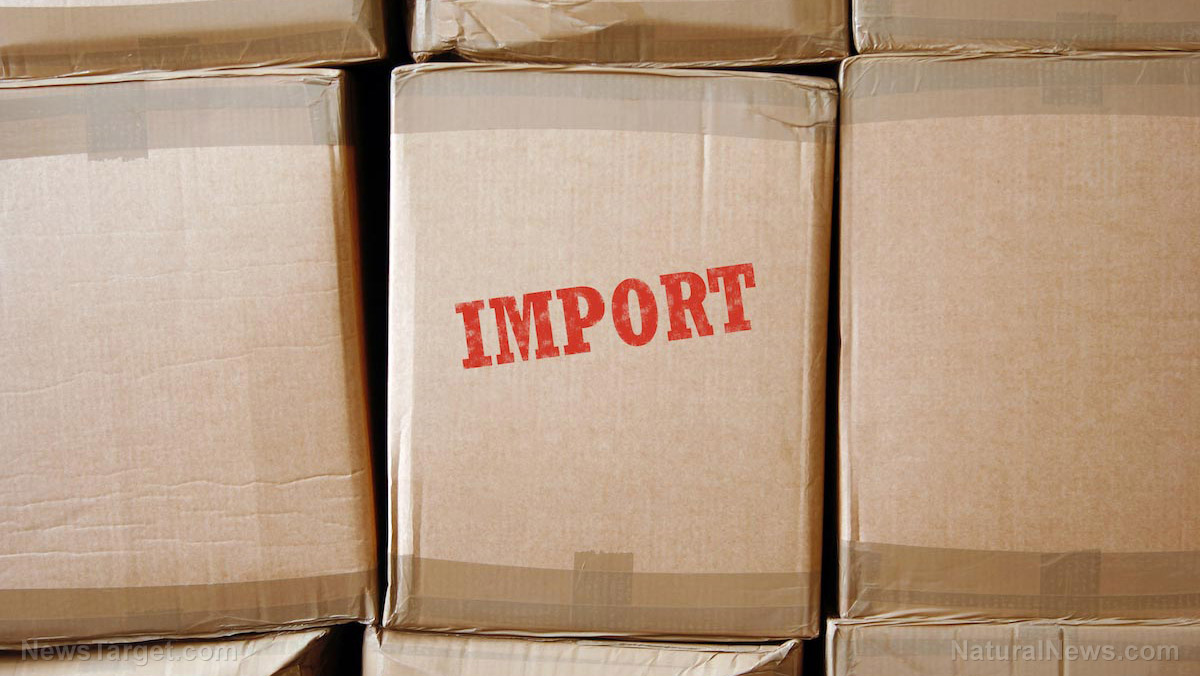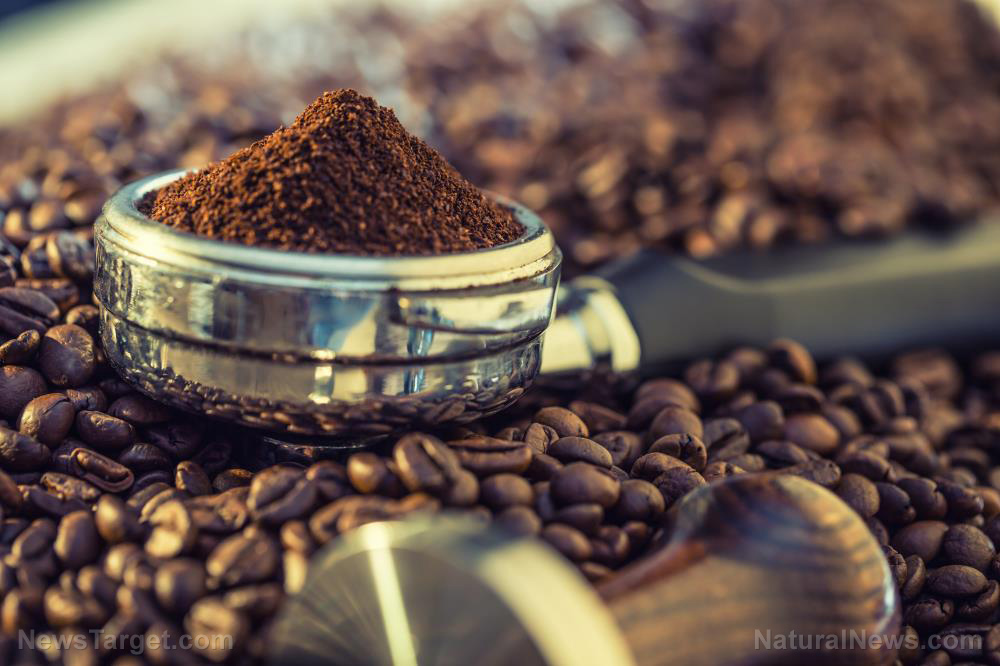15 Ways to use spent coffee grounds on your homestead
By Divina Ramirez // Feb 04, 2022
TAGS: coffee, coffee grounds, green living, home gardening, homesteading, how-to, off grid, preparedness, prepper, prepping, sustainable living, tips
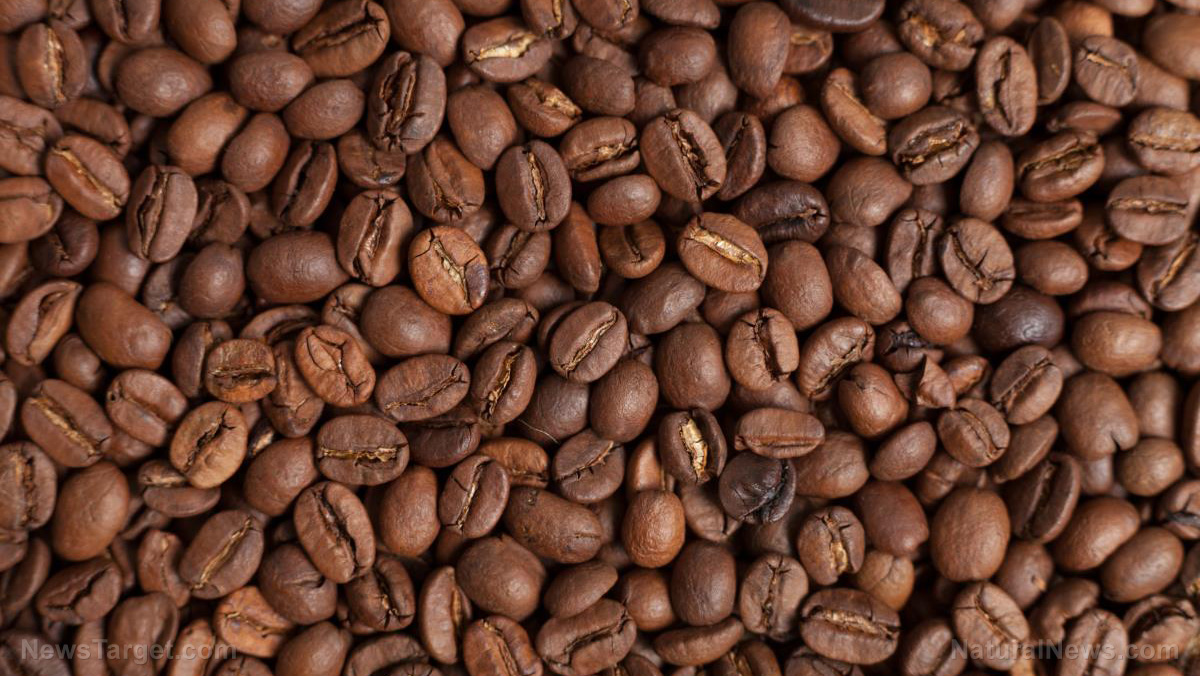
Most people discard the grounds left after brewing coffee. But spent coffee grounds still have plenty of practical uses in your home and in the garden. They can even help spruce up your daily skincare routine.
Here are 15 clever ways to use spent coffee grounds: (h/t to PracticalSelfReliance.com)
- Compost – Composting coffee grounds adds nitrogen to your compost pile. Nitrogen gives plants energy to grow. Composting coffee grounds is as easy as throwing the spent grounds onto your compost pile.
- Pest control – You may love the aroma of freshly brewed coffee, but pests like snails don't. Sprinkle spent grounds around plants that need protection from pests. The grounds will naturally decompose after a few days, effectively serving as fertilizer. Replace them as needed.
- Pet flea treatment – Add fleas to the list of pests that hate the smell of coffee. At bath time, rub your pet's coat with spent grounds, then rinse. Make sure to avoid your pet's eyes and mouth when applying the grounds. (Related: These nontoxic remedies kill fleas and ticks without harming your pet.)
- Cat repellent – Cats also can't stand the smell of coffee. If you have trouble keeping stray cats from your property, sprinkle spent coffee grounds around your lawn and garden.
- Worm food – Fishermen feed their bait worms spent coffee grounds to keep them alive longer. The grounds also serve as bedding for the worms. It's also said that fish like trout and bass are attracted to the smell of coffee. This idea came from fishermen who noticed that they seemed to catch more fish with worms fed coffee grounds.
- Cookware cleaner – The coarse texture of spent coffee grounds is great for removing hardened food bits or gunk from your pots and pans. Simply sprinkle the grounds directly onto your cookware that needs cleaning, then scrub away with a sponge or brush. Rinse well to get rid of the coffee aroma.
- Garbage disposal deodorizer – Banish foul odors from your garbage disposal by sending 1/4 teaspoon of spent coffee grounds and a cup of ice down the disposal. Run it for a few minutes.
- Wood stain – To stain untreated wood using spent coffee grounds, mix 1/4 cup of spent grounds and one to two cups of vinegar in a jar. Let the mixture sit overnight before applying it to the wood.
- Fireplace cleaner – Spent coffee grounds bind to ash and dust particles while you're cleaning the fireplace, making it easier to dispose of them after cleaning. Just spread the grounds over the fireplace, clean it as you normally would, then discard the grounds.
- Hand and foot deodorizer – Keep a small dish of spent coffee grounds by your kitchen sink or prep area for deodorizing your hands after handling pungent ingredients like onions. If you have smelly feet, wash them with cold water, then scrub them with spent coffee grounds to eliminate odor.
- Refrigerator deodorizer – Coffee grounds can also soak up odors around them. Put some dried, spent grounds in a shallow jar and place it in the back of your refrigerator. It won't mask the odor of spoiled food or anything particularly smelly, but it should be enough to keep things smelling fresh inside.
- Pie weights – Place your unbaked pie shell in a tin, then cover it with aluminum foil. Fill it with dried, spent coffee grounds. The aluminum foil keeps the grounds from coming into contact with the pie shell, while the grounds hold the pie shell in shape as it bakes.
- Espresso powder – Spent coffee grounds still retain most of their coffee flavor but without the acidic pH of fresh grounds. As such, spent grounds are great for making homemade espresso powder, which will add flavor to dishes without reacting to other ingredients or negatively affecting their pH values.
- Candles – Get rid of stale indoor air by lighting homemade candles made from spent coffee grounds. Follow this detailed guide to make your own coffee candles.
- Facial and body scrub – Make an all-natural, rejuvenating scrub for your face and body by mixing spent coffee grounds, jojoba oil, castile soap and your preferred essential oil. Use daily to feel energized.
Watch "8 Smart Ways to Reuse Coffee Grounds" on Brighteon.TV to know more about using spent coffee grounds.
This video is from DIY Craft.
Homesteading.news has more articles with tips on how to reuse food scraps.
Sources include:
Related Topics
coffee coffee grounds green living home gardening homesteading how-to off grid preparedness prepper prepping sustainable living tipsLatest News
05/16/2023 / By Ethan Huff
05/16/2023 / By Ethan Huff
05/16/2023 / By S.D. Wells
05/16/2023 / By Ethan Huff
Related News
01/24/2023 / By Lance D Johnson
09/20/2022 / By Arsenio Toledo
06/17/2022 / By Zoey Sky
11/18/2021 / By Matthew Davis
10/25/2021 / By Matthew Davis
09/23/2021 / By Mary Villareal
Take Action:
Support NewsTarget by linking to this article from your website.
Permalink to this article:
Copy
Embed article link:
Copy
Reprinting this article:
Non-commercial use is permitted with credit to NewsTarget.com (including a clickable link).
Please contact us for more information.
Please contact us for more information.
















